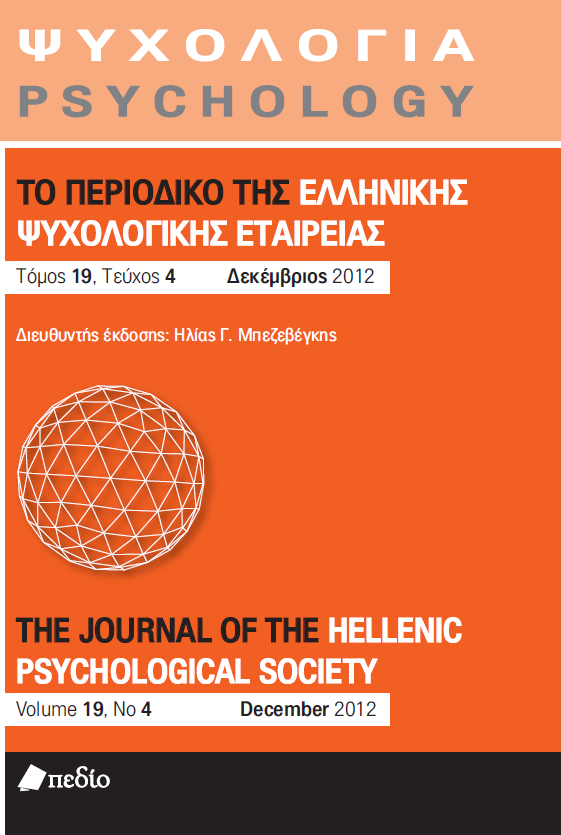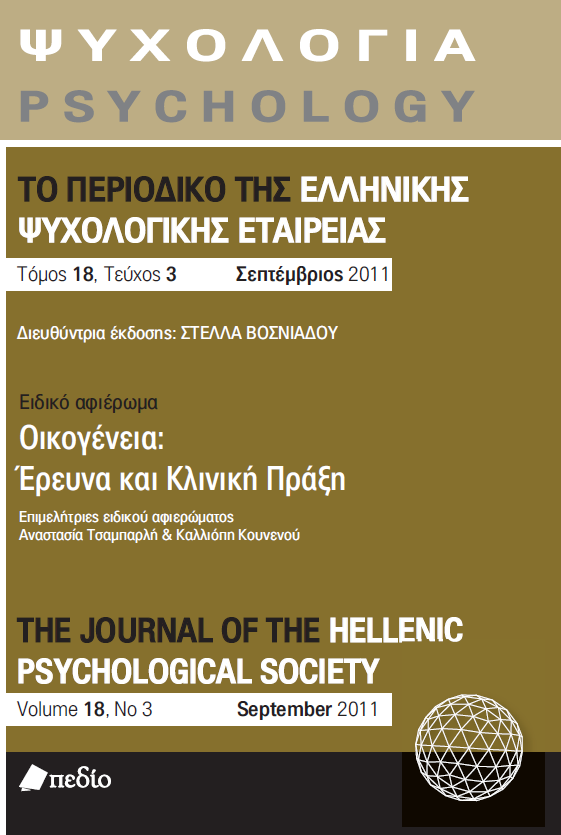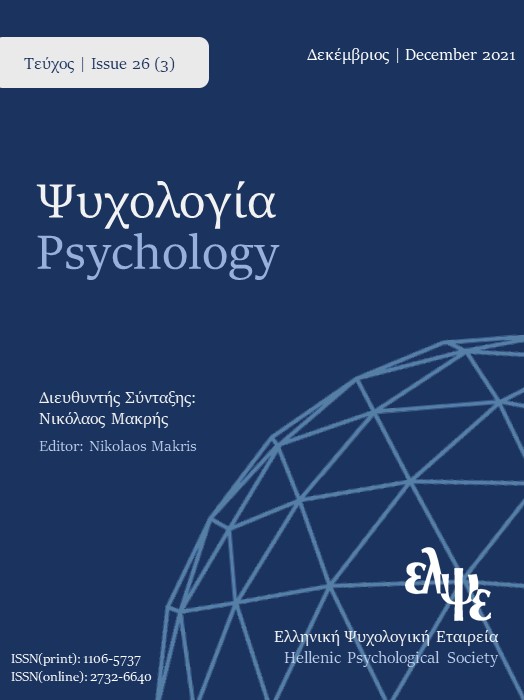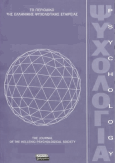Εμπειρίες και βιώματα μητέρας παιδιού με σύνδρομο Down: μια μελέτη περίπτωσης
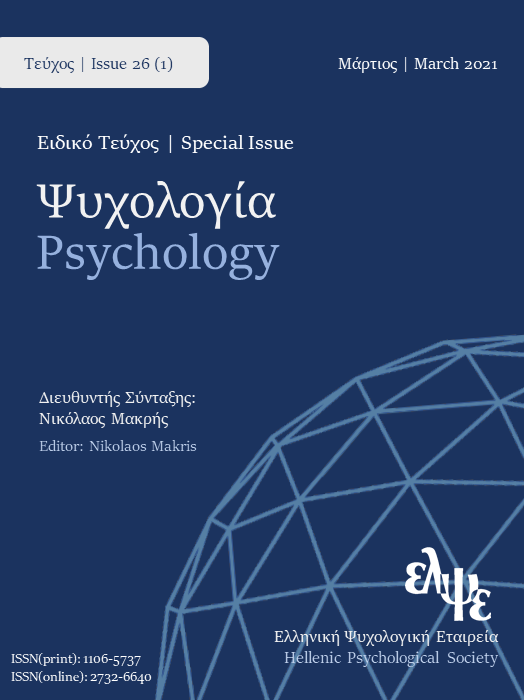
Περίληψη
Λεπτομέρειες άρθρου
- Πώς να δημιουργήσετε Αναφορές
-
Μαρκοδημητράκη Μ., & Κυπριωτάκη Μ. (2021). Εμπειρίες και βιώματα μητέρας παιδιού με σύνδρομο Down: μια μελέτη περίπτωσης. Ψυχολογία: το περιοδικό της Ελληνικής Ψυχολογικής Εταιρείας, 26(1), 264–277. https://doi.org/10.12681/psy_hps.26248
- Ενότητα
- ΕΙΔΙΚΟ ΑΦΙΕΡΩΜΑ

Αυτή η εργασία είναι αδειοδοτημένη υπό το Creative Commons Attribution-ShareAlike 4.0 International License.
Το περιοδικό ΨΥΧΟΛΟΓΙΑ έχει υιοθετήσει μία πολιτική Platinum open-access. Τα έξοδα υποβολής, επεξεργασίας ή δημοσίευσης των εργασιών καλύπτονται από την Ελληνική Ψυχολογική Εταιρεία. Τα πνευματικά δικαιώματα των δημοσιευμένων εργασιών προστατεύονται από την άδεια 'Creative Commons Attribution-ShareAlike 4.0 International'. Οι Συγγραφείς διατηρούν τα Πνευματικά Δικαιώματα και χορηγούν στο περιοδικό το δικαίωμα της πρώτης δημοσίευσης. Η άδεια αυτή επιτρέπει σε τρίτους, να χρησιμοποιούν την εργασία σε οποιαδήποτε μορφή, με την προϋπόθεση της διατήρησης των διατυπώσεων που προβλέπονται στην άδεια σχετικά με την αναφορά στον αρχικό δημιουργό και την αρχική δημοσίευση στο περιοδικό ΨΥΧΟΛΟΓΙΑ. Επιπλέον, κάθε διανομή της εργασίας οφείλει να γίνεται με τους ίδιους όρους διανομής, δηλαδή με την ίδια άδεια Creative Commons.



